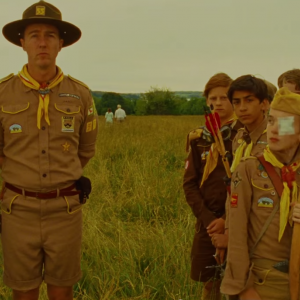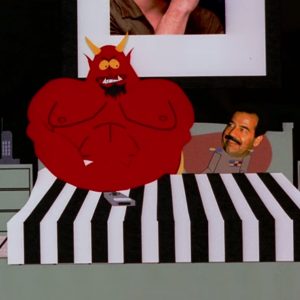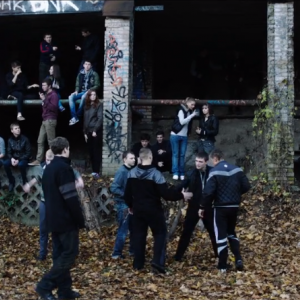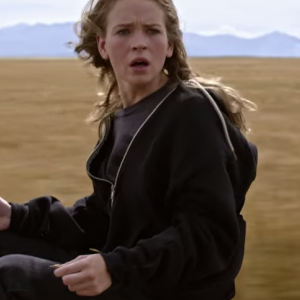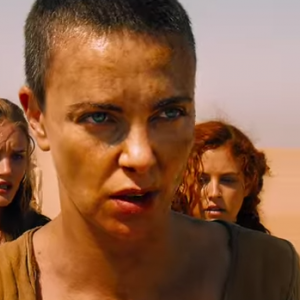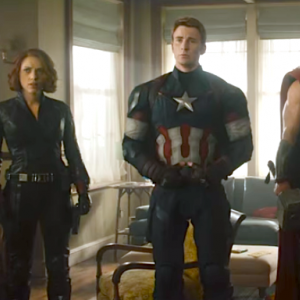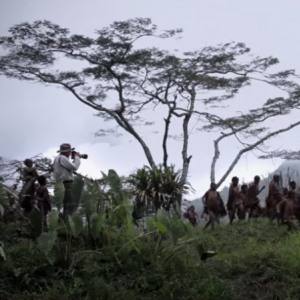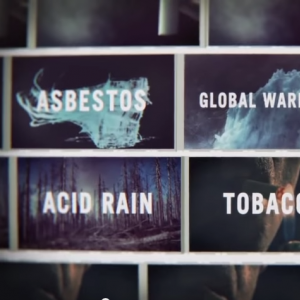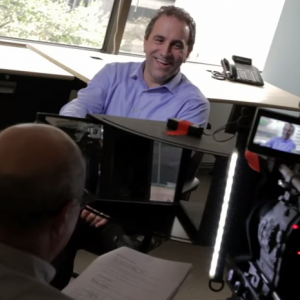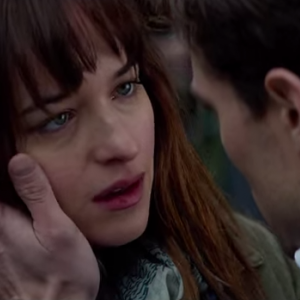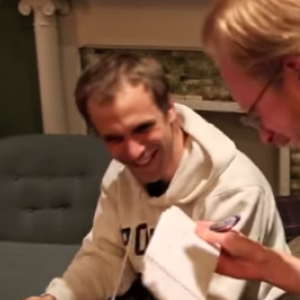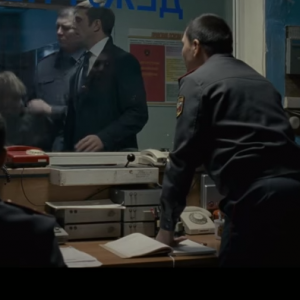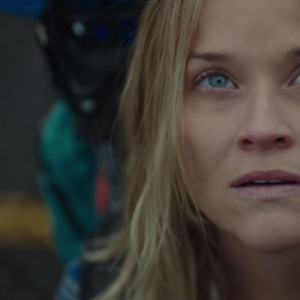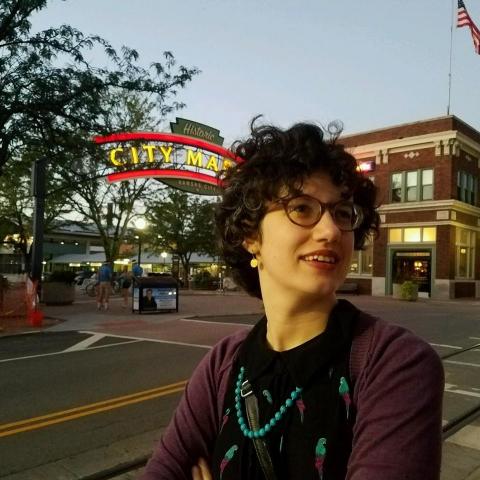
Abby Olcese (@abbyolcese) has been many things — a campus ministry leader at the University of Kansas, an English teacher in Prague, and an advertising assistant at Sojourners. These days, she’s a freelance writer based in Kansas.
Raised on a diet of Narnia, Bob Dylan records and Terry Gilliam movies, Abby is drawn to the weird, the nerdy, and the profoundly artsy corners of popular culture. She loves sharing this knowledge with others by writing about interesting new releases as well as lesser-known gems.
Abby is also passionate about the intersection of faith, social responsibility, and culture. She believes in the power of art to spark important conversations, inspire social change, and help people to better understand life in the kingdom of God.
When she’s not watching movies or writing things down, you can usually find Abby reading comic books or perusing the selection at her local record store.
Posts By This Author
Real Life, With Superpowers
In 'Ms. Marvel,' a Muslim teenage girl is the hero we've been waiting for.
I REMEMBER THE FIRST TIME someone told me I couldn’t do something because I was a girl. I was in preschool, preparing for an epic game of Teenage Mutant Ninja Turtles with a group of boys. I was playing April O’Neil, the Turtles’ journalist ally. As we started our game of pretend, my teacher came over to ask what we were doing.
“Playing Teenage Mutant Ninja Turtles,” I responded.
“Oh, you shouldn’t be playing that.”
“But I’m April,” I explained. “I’m a girl.”
“No, girls don’t play games like that,” she told me, and directed me toward the finger paints.
Whatever my teacher’s intentions, the damage was done. From that day on, superheroes and all things related were a “boy thing.” That meant the X-Men, Batman, Superman, and, yes, Donatello and his human-reptile hybrid team were all off-limits. I eventually grew to love comics as a teenager and an adult, but I was aware that they rarely featured anyone other than white men (or, occasionally, heavily objectified women) as the heroes.
Thank goodness for Kamala Khan.
Kamala is the teenage protagonist of Marvel Comics’ rebooted Ms. Marvel series. She’s a clever, funny 16-year-old living in Jersey City, N.J., who, in addition to having superpowers, writes superhero fan fiction, plays video games, and struggles with parent-enforced curfews. She also happens to be the second-generation daughter of Pakistani immigrants and a practicing Muslim.
Meet Dylan Marron, the Creator of 'Every Single Word'
Marron edits hit films down to lines spoken by people of color. The results are damning.
Actor and writer Dylan Marron is the creator of Every Single Word, a popular tumblr and video series dedicated to exposing the lack of racial diversity in mainstream Hollywood films.
For the series, Marron, a biracial native of Venezuela best known for his work on the cult-favorite podcast Welcome to Night Vale, chooses a well-known, recent film and edits it down to only the lines spoken by people of color. The results are damning. None of the videos in Marron’s series last over a minute. Some, like Noahand Into the Woods, which feature no actors of color at all, simply cut directly to black.
Marron spoke with Sojourners about the origins of the project, the long-term effects of poor diversity representation onscreen, and systemic struggles facing people of color in the entertainment industry.
The Devil Goes Pop
6 wicked devils from pop culture
As Jenna Barnett wrote yesterday in "The Devil We Know," the way Christians have thought about the devil has changed over time — and continues to change. The same is true of pop culture where a long fascination with depictions of the afterlife has led to some diverse and enduring depictions of Hell, demons, and even the devil himself. More recently, popular versions of demons and the devil have been particularly creative, from exploring Satan’s retirement to demented sock puppets. Here are just a few — six, to be precise — of the devils’s most loved (and hated) portrayals in books, movies, T.V., and beyond.
1. The Devil (Faust / Doctor Faustus)
One of literature’s most popular depictions of the devil, this version of the prince of darkness has gone on to inspire countless recreations in film, T.V., theater, and music. Beginning life as a German legend, then the subject of plays by Christopher Marlowe and Johann Wolfgang von Goethe, Doctor Faustus (or Faust) is the story of a scholar who sells his soul to the devil for the ability to practice magic. The devil as a shrewd dealer of desires can also be found in the music of Robert Johnson, stage productions like Damn Yankees, and T.V. shows like Supernatural, among countless other examples.
Appears in: Literature, Theater (Faust, Doctor Faustus)
Transcending Language, 'The Tribe' Is a Brutal Work of Art
Sometimes art is ugly. It carries with it as much capacity for violence and dread as it does transcendent beauty. This is true for film as much as it is with any other medium — it’s why we can have movies like Paris, Texas and Children of Men, and respect them in equal measure.
Difficult subject matter, particularly of the violent or sexual variety as in The Tribe, doesn’t make a film less credible. It’s what the director does with that subject matter that tells us how to react.
Sometimes art is ugly. It carries with it as much capacity for violence and dread as it does transcendent beauty. This is true for film as much as it is with any other medium — it’s why we can have movies like Paris, Texas and Children of Men, and respect them in equal measure.
Difficult subject matter, particularly of the violent or sexual variety as in The Tribe, doesn’t make a film less credible. It’s what the director does with that subject matter that tells us how to react.
Recognizing Each Person's Intrinsic Value in 'Inside Out'

Image via Disney's 'Inside Out'
A mixture of thoughtful messaging and imaginative storytelling is what’s made many of Pixar’s films into modern classics. But the studio’s latest release, Inside Out, may include its most poignant theme yet: the complex emotional workings and unique roles of each and every human being.
Inside Out is a film that allows viewers to literally go inside the heads of its characters, and understand why they think the way they do. It’s a clever “what if” exercise, but also an opportunity to deeply explore the specific memories, assemblages of emotions, and detailed thoughts that make us special.
'Jurassic World' and the Problem with Hollywood Reboots
Among the big releases this summer, two films offer new installments of iconic franchises. One, Mad Max: Fury Road is a master class in how to do it right. Made as a labor of love, not a studio cash-grab, it uses a familiar setting and hero to explore new artistic territory, and still maintains an insanely entertaining level of action.
The other is Jurassic World.
'Good Kill' Aims Deep, But Only Skims Surface
Addressing moral injury in film is important. Addressing pertinent political issues like drone warfare is also important. But Good Kill doesn’t say anything an editorial wouldn’t, and takes about three times as long to say it. With this film, Andrew Niccol tries to create a sense of disassociation similar to what his drone pilot protagonist would feel. Sadly, the end isn’t compelling enough to justify the means. Good Kill ends up being a ponderous slog, a film that wants to be a conversation-starter but doesn’t introduce any new or interesting entry points into that conversation.
The Cheery Optimism of 'Tomorrowland'
It’s both ironic and appropriate that the new Disney film Tomorrowland is being released exactly a week after Mad Max: Fury Road. The new film from director Brad Bird (The Incredibles, The Iron Giant, Mission Impossible: Ghost Protocol) is the polar opposite of post-apocalyptic. It’s a film that’s hugely optimistic about the future, and our ability to fix the world’s problems through good old-fashioned ingenuity. The movie occasionally veers towards overly naïve, and its internal logic doesn’t always work. But despite some problems, it remains a refreshing alternative to a summer movie season that’s otherwise been filled with darker worldviews.
The film starts not with a jump forward, but backward, to the 1967 World’s Fair, where boy genius Frank Walker arrives with a homemade jetpack and hopes of winning an inventing competition. There Frank is befriended by a mysterious girl named Athena (Raffey Cassidy), who takes him to the magical world of Tomorrowland, a colorful futuristic place full of advanced discoveries and retro-space age design.
The Sneaky Progressivism of 'Mad Max: Fury Road'
But this isn’t just a movie about brooding wanderers and spectacular car crashes. The women of Fury Road are the ones who get most of the attention, and who are undeniably the heroes of the film. They are tough, and know how to take care of themselves, but also represent their world’s best hope for change. The film frequently juxtaposes the difference between their compassionate, renewal-focused instincts, and Immortan Joe’s destructive excess.
Whedon's 'Ultron:' Marvelous
From the first Avengers film, Whedon has shown that his primary interest, apart from the utter coolness of watching Hulk destroy a city block, is the dynamics of the Avengers team. This is a group of people with different backgrounds, ideologies, and agendas who might never have come together on their own. That they are forced to work together under impossible circumstances forces those tensions to their breaking point, but also creates a sense of camaraderie that’s thrilling to watch in action.
Working within the conventions of postmodern superheroism, Whedon also addresses the side effects of frequent exposure to violence. It might seem ironic that Captain America (Chris Evans), introduced as the ideal patriot, is one of the group’s more peace-loving members. But as the sole military veteran on the team, his outlook makes sense for someone who’s sacrificed a lot in battle. When he tells Stark, “Every time someone tries to end a war before it starts, innocent people die,” you know he speaks from experience.
'Ex Machina' is 'Frankenstein' for the Digital Age
The question of what makes us human has been around pretty much as long as we have. Attempts at tackling it have produced a veritable hall of fame of iconic results: Frankenstein. 2001: A Space Odyssey. The entire bibliographies of Philip K. Dick and Kurt Vonnegut. The list goes on.
But the thing about big unanswerable questions is that although we may never get closer to figuring out the answers, it can be awfully fun and rewarding to keep asking them. And with advances in society and technology, the question of our humanity — and its future — seems to transmogrify by the day.
In the grand legacy of stories about what separates us from the animals (or, in this case, androids), Ex Machina, the directorial debut of screenwriter-novelist Alex Garland (The Beach, 28 Days Later, Sunshine) is nothing new. It’s a direct descendent of Frankenstein, The Island of Doctor Moreau, and scads of stories that have come before, bringing up classic issues of nature, nurture, and what happens when we play God. But Garland’s sci-fi thriller smartly wears those influences on its sleeve, adding to them a sharply modern sense of style, with a plausible approach that’s both intriguing and troubling to consider.
Caleb (Domhnall Gleeson) is an employee at a large tech company, who wins a contest to hang out for a week with the company’s reclusive genius founder Nathan (Oscar Isaac) at his secluded house/research facility. Upon his arrival, Caleb discovers the real purpose of his visit: Nathan wants him to interact with Ava (Alicia Vikander), a robot he’s created, and determine whether she can convincingly pass for human. The conflict arises when Caleb’s true role in Nathan’s test, and Ava’s own mysterious intentions, come under suspicion. How much of Ava’s behavior is what Nathan has programmed into her, and how much is she acting on her own?
Writer-director Garland has always excelled in creating satisfying thrillers with deeper questions in mind, particularly in the realm of exploring uglier parts of human behavior. In Ex Machina, he may have created his best work yet, working with a very small cast in a limited space that gives the characters plenty of chances to turn on each other in subtle, clever ways.
'The Salt of the Earth:' Gorgeous Photos in Stark Perspective
Why do we engage with art? What is about a poem, painting, film, or photograph that can sometimes make them rank among the most impactful experiences of our lives? Sure, skill has a lot to do with it. Aesthetics and story do, too. But one of the things, perhaps the biggest thing that makes art art, and which gives it that extra emotional oomph, is perspective.
Perspective can mean many things. It can mean the point of view from which a story is told. It can mean the way in which something is presented visually; looking down from above, for example, or up from below. More expansively (and when it’s done well), perspective means using all of these to express the worldview of the artist, communicating their thoughts about a subject, or a place, or even just life in general, by what they choose to show us and how they choose to show it.
The Salt of the Earth, Oscar-nominated this year for Best Documentary, is a film about Brazilian photographer Sebastião Salgado. But it’s also a film about perspectives. Not just Salgado’s, shown through his life and his art, but also the perspectives of the film’s two directors, the photographer’s son, Juliano Ribeiro Salgado, and German New Wave auteur Wim Wenders (the director of Wings of Desire and Paris, Texas). Each man approaches the subject with a different point of view — Salgado recounting his own experiences, Juliano as the son who grew up with an often absent father, and Wenders as a fellow artist and long-time admirer of Salgado’s work.
'It Follows' Explores the Spirituality of Horror
Should Christians like horror movies?
It’s a question that many a Christ-following cinema junkie has had to ask themselves. It’s hard not to feel a bit conflicted enjoying a zombie apocalypse or a masked maniac when peace and tolerance are core parts of your belief system. If we’re going to be discerning consumers of culture, what value is there in horror?
I could pose one of a dozen different possible answers, each with their own set of arguments — for example, how the collective act of yelling in the dark at a dumb teen NOT TO GO IN THE CABIN transcends race, politics, and gender. Or how horror can help us embrace the inherently supernatural elements of faith. Or how it does the important job of reminding us that evil exists in the world, and can take on any number of forms.
But the argument that truly separates the wheat from the tares is that great horror, going all the way back to its roots in gothic literature, offers some of the best social commentary there is. Truly iconic horror films (and horror stories, for that matter) allow us to go below the surface of your basic spine-chiller, and think about everything from racism to gender politics to the afterlife.
Horror is at its best when it gives you something to think about along with your creeps. The new film It Follows, out this weekend, fits that bill quite well. It also happens to be one of the scariest movies this year.
The plot feels like classic urban legend. Teenager Jay (Maika Monroe) is dating the slightly older Hugh (Jake Weary), and decides one night to go all the way with him. Once it’s over, however, Hugh informs Jay that he’s cursed by a demon, a demon he’s now passed on to her. The demon will follow Jay, slowly and consistently, until it catches up with her and kills her, unless she first passes it on to someone else through sexual contact. If the demon kills her, it will then return to stalk and kill Hugh. Only Jay can see the demon, and it can look like anyone, be it a stranger, friend, or beloved family member.
This premise could easily be turned into something silly and gratuitous, and were it a studio venture instead of a smaller independent film, It Follows might have been just that. But although writer-director David Robert Mitchell has made a movie in which sex plays a pivotal role, he’s more interested in the consequences of it than the act itself. It Follows is packed with symbolism that represents loss of innocence, the onset of adulthood, and reminders of mortality — the ever-approaching darkness that none of us escape. Grim, yes, but also pretty impressive in a genre more commonly associated with objectification and cheap thrills.
'Merchants of Doubt' Dismantles Climate 'Skeptics' Spin But Misses Chance to Build Bridges
In one scene in the new documentary Merchants of Doubt, Michael Shermer, the publisher of Skeptic magazine, explains what he thinks is the underlying factor behind climate change skepticism.
“It isn’t about the science,” Shermer, a libertarian and former skeptic who came around on the issue in 2006, tells director Robert Kenner.
“It’s about me being a consistent team member; showing the members of my tribe that you can count on me.”
Tribalism is an important part of the equation. But Kenner, whose previous film was the well-regarded Food, Inc., believes corporate spin is just as much to blame.
Merchants of Doubt aims to show viewers how the same PR tactics that kept the tobacco industry thriving for decades are now being used to encourage climate change skepticism and denial. While the film does important work in helping audiences understand how paid representatives spread misinformation, it doesn’t do enough to address the tribalism that may keep the film’s most necessary audiences from seeing it.
READ Sojourners' interview with Merchants of Doubt Director Robert Kenner here.
To his credit, Kenner does an excellent job at making the subject matter appealing. He uses the framework of close-up magic as a metaphor for the way PR representatives work to cover up industry-damaging facts, first for tobacco, and then for coal, oil, and other clients. He interviews journalists, scientists, and lobbyists whose stories are at once fascinating and infuriating. There are even some sources, like conservative former South Carolina Rep. Bob Inglis, who manage to help the film build bridges with audiences whose tribal identity might require them to skew towards climate skepticism.
Merchant of 'Doubt:' Robert Kenner, Director of 'Food, Inc.,' Has a New Film on Corporate Spin. Here's What He Says About It.
Robert Kenner is the director of the new corporate spin documentary Merchants of Doubt, now in theaters. The film explores how representatives of large industries create doubt on contentious issues like climate change by presenting themselves to the media as independent researchers. Kenner’s previous film, Food Inc., examined similarly sticky issues of truth and transparency in the food industry. Sojourners sat down with Robert Kenner after Doubt's Washington, D.C., premiere to discuss the nature of doubt and the rise of corporate involvement in media narrative-making.
This interview has been edited for length and clarity.
Abby: Why did you want to use the tobacco industry to introduce audiences to the world of corporate spin? And why go from there to climate change?
Kenner: I see this as a film about this class of doubters, how there are these very talented people who are very successful at what they do. We just had a screening at the Columbia Journalism School, and someone there said that for every journalist, there’s 4.5 PR reps.
There used to be more journalists than PR reps — and some of these reps are now being paid by the people they used to investigate. So in effect, we’re looking at multiple industries. We could have spent as much time on pharmaceuticals or the food industry.
I was also certainly interested in the notion of how you can have these things like tobacco, like certain pharmaceutical issues, or like climate, where the science is clear yet the doubt persists. How do you maintain doubt when the science is clear that it’s about something else? What are the factors? And it turns out there multiple, of which money is one of the biggest.
Part of it is tribal, but that was true with gay rights, too, and all of a sudden six years later things have changed. I’m feeling kind of optimistic that it can change around the issue of climate from that perspective.
But the thing that interested me most was how media could represent issues as if they were debates when they weren’t debates.
READ Sojourners' review of Merchants of Doubt here.
Christian Alternative to 'Fifty Shades' Makes the Same Mistakes, Just Without the Sex
This Valentine’s Day, two films will battle for the hearts and minds of the American public. One of them is Fifty Shades of Grey, the popular culture juggernaut that has earned millions of dollars worldwide. The other is a Christian-produced independent film, Old Fashioned, which bills itself as the scrubbed-up, evangelical alternative.
Having faith-based responses to secular media (and saying Fifty Shades of Grey is secular is a little like saying the Grand Canyon is big) is more than appropriate. It’s necessary. Otherwise we risk ignoring the vital words of Romans 12:2: “Do not conform to the pattern of this world, but be transformed by the renewing of your mind.” Christians and non-believers alike should be regularly exposed to art that causes them to question the world around them.
Sadly, Old Fashioned is not the movie to fit that bill. Both it and Fifty Shades of Grey present dangerously unrealistic portraits of relationships — one just does it without the sex.
Review: 'Sojourners Internship Program' is a Real Treat
It’s rare that a film can take all of these journeys and still tell a cohesive story. Sometimes, when we’re very lucky, a truly special film comes along that gets as close as possible to combining and distilling the infinite layers of the human experience. The Sojourners Internship Program is one of these truly special feats. It takes each facet of its characters’ journeys seriously, and allows each of them to explore those facets in their own unique ways.
Like most great stories, the setup of The Sojourners Internship Program is simple, but filled with the potential to go any number of directions: 10 individuals from different ethnic, economic, political and spiritual backgrounds are selected as interns for a social justice organization. They travel to Washington, D.C., to live in community and work together. But the community they live in is no ordinary community, and neither is the organization. The interns enter their house in Columbia Heights as strangers with hopes, ideals, doubts and a few preconceived notions. But they will leave forever changed.
'Leviathan' a Grimly Familiar Beast
When we meet Kolya, the film’s protagonist, he’s in the midst of a long legal battle. He’s about to lose the house he built to the town’s mayor, a paranoid man obsessed with his own job security. Kolya’s already lost in court, but enlists the help of former army buddy Dimitri, a high-powered lawyer, to help him with an appeal. After the appeal’s failure, and some nasty bullying from local officials, Kolya is hit with a seemingly endless avalanche of humiliation and personal catastrophes.
The fishing village depicted in the film is a run-down hamlet characterized by an impressive amount of skeletal remains — and not just the kind that live in the closet. It’s strewn with ruined buildings, wrecked boats, and massive whale skeletons. In our world, the best architecture serves as a testament to man’s accomplishments, but the buildings and bones of Leviathan do exactly the opposite. They’re a constant reminder of decay and the temporary nature of what we mere mortals spend so much energy building and fighting over. Leviathan’s target is corruption in Russia, but its themes of pride, personal struggle, and frustration are universal.
A Tame Kind of 'Wild'
Director Jean-Marc Vallee (The Dallas Buyer’s Club) and writer Nick Hornby (author of High Fidelity and About a Boy) attempt valiantly to solve this problem, and achieve some moments of real beauty in the process. However, they never quite find a way to effectively connect Strayed (Reese Witherspoon) in her lowest moments, which include heroin addiction, the termination of a pregnancy, and divorce, with the woman we’re watching hike from Mexico to Canada — a woman who, while troubled, seems to have it considerably more together.
It also doesn’t help that the conversations Strayed does have on the trail tend towards the kind of dialogue that feels less like natural conversation and more like a talk between archetypes spouting bumper-sticker wisdom. The conversations that come up, about choices, regrets, and mistakes made, are all valuable. But the way they happen feels sanitized.
Ultimately, Wild does manage to present some solid thoughts on the process of grief and redemption. Strayed’s observation that everything in her life, both good and bad, led her to becoming a stronger, better person is important. Just as important is the film’s point that our relationships with others are vital to our survival and growth.
There’s no doubt that Strayed’s own experience was powerful and tough. But in its translation to film, particularly a film with a plot and performance tailor-made for awards season, Wild is a movie that’s afraid to upset people. It acknowledges the hard stuff, but barely hints at the true emotional complexities of its story and of its main character. Where it ought to challenge, it merely suggests. And while that’s okay, it’s disappointing that it isn’t more.
Finding The Perfect Gift
Like a lot of people, I love giving presents almost as much as receiving them. And the best gifts of all are ones that come with a clear understanding of the recipient in mind — ones that involve thought and care. Maybe a weird record with cover art only your best friend would love, or a necklace that goes perfectly with your mom’s favorite dress.
But spending that much effort on gifts for every single person on your list can be exhausting. Handmade gifts sometimes take weeks to plan and make in advance, and you don’t always have the time (or gas money, for that matter) to spend an entire day driving all over town searching for the perfect present, as romantic as that sounds.
Luckily, there are plenty of great resources out there to provide you with excellent gifts that give back. You can find some of them listed in Sojourners’ Just Giving Guide, which offers options ranging from clothes and jewelry to coffee and pecans (yes, pecans!). And if you just can’t find that special something, there are also plenty of choices for giving a donation in honor of a friend or loved one.

